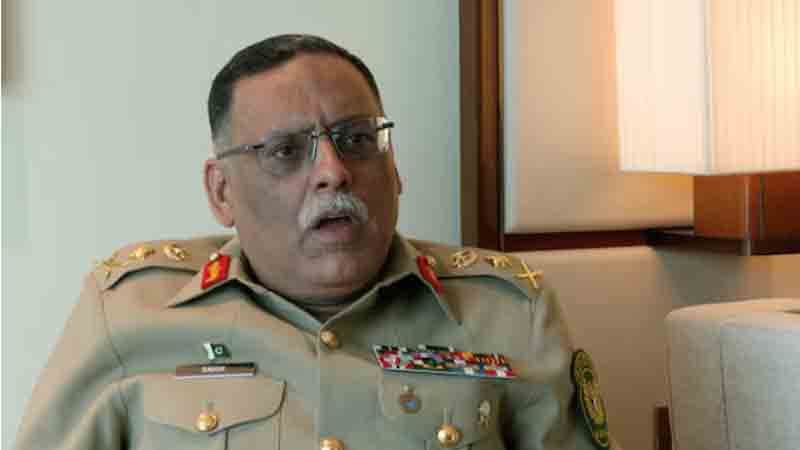Pakistan and India are nearing a reduction of troop levels along their border to pre-conflict numbers, as stated by a senior Pakistani military official to Reuters on Friday. However, he cautioned that the current crisis has heightened the risk of future escalations.
Over four days of intense clashes, both nations deployed fighter jets, missiles, drones, and artillery, marking their most severe confrontations in decades, until a ceasefire was declared. The recent hostilities were ignited by an attack in Kashmir on April 22, which resulted in the deaths of 26 individuals, primarily tourists. New Delhi attributed the attack to “terrorists” supported by Pakistan, a claim that Islamabad has refuted.
On May 7, India targeted what it identified as “terrorist infrastructure” across the border with missile strikes, prompting Pakistan to retaliate with its own assaults, leading both countries to reinforce their military presence along the border.
General Sahir Shamshad Mirza, the chairman of Pakistan’s joint chiefs of staff, indicated that the two nations have begun the process of reducing troop numbers. “We have nearly returned to the situation that existed before April 22… we are getting close to that, or we should have reached that point by now,” Mirza remarked, being the highest-ranking Pakistani military official to publicly address the situation since the outbreak of conflict.
India’s Ministry of Defence and the office of the Indian Chief of Defence Staff did not promptly reply to Reuters’ inquiries regarding Mirza’s comments.
Mirza, currently in Singapore for the Shangri-La Dialogue forum, stated that although there was no movement towards nuclear weapons during this conflict, the situation remains perilous. “Nothing occurred this time,” he remarked. “However, one cannot dismiss the possibility of a strategic miscalculation at any moment, as responses differ during a crisis.”
Pakistan and India are beginning to reduce troop deployments along their shared border after the worst clashes in decades, Pakistan’s Chairman of the Joint Chiefs of Staff, General Sahir Shamshad Mirza told Reuters.
The General said the situation is returning to pre-conflict… pic.twitter.com/rIzUMobZs1
— Nukta Pakistan (@NuktaPakistan) May 30, 2025
He further noted that the likelihood of escalation has grown since the recent fighting extended beyond the disputed region of Kashmir, a picturesque area in the Himalayas that both countries partially govern but claim entirely. Both nations targeted military facilities within their territories, yet neither has admitted to any significant damage.
Indian Prime Minister Narendra Modi cautioned Pakistan earlier this month that New Delhi would strike “terrorist hideouts” across the border again if new attacks on India were to occur. The two nations have engaged in three significant wars, two of which were over Kashmir, along with numerous armed confrontations since their emergence from British colonial India in 1947.
India accuses Pakistan of fostering an insurgency in its section of Kashmir that began in 1989 and has resulted in tens of thousands of deaths. Pakistan asserts that it only offers moral, political, and diplomatic backing to Kashmiris pursuing self-determination.
“This (conflict) diminishes the threshold between two neighboring nuclear powers…in the future, it will not be confined to the disputed territory. It will encompass (the) entirety of India and (the) entirety of Pakistan,” Mirza stated. “This represents a very hazardous trend.
Swift increase in hostilities was partly mitigated by behind-the-scenes diplomacy involving the U.S., India, and Pakistan, with Washington playing a crucial role in facilitating peace. India has refuted any involvement of a third party in the ceasefire, asserting that any interactions between India and Pakistan must be bilateral.
However, Mirza cautioned that future international mediation could be challenging due to the absence of crisis management mechanisms between the nations. “The time window for the international community to intervene is now significantly reduced, and I would argue that damage and destruction may occur even before this window is utilized by the international community,” he stated.
He noted that Pakistan was receptive to dialogue, but apart from a crisis hotline between the military operations directors general and some tactical hotlines along the border, there was no other communication between the two nations.
In response to a question regarding the potential for dialogue with Pakistan, India’s foreign ministry spokesperson remarked on Thursday that “talks and terror don’t go together.”
Mirza indicated that there were no backchannel discussions or informal negotiations aimed at reducing tensions. He also mentioned that he had no intentions of meeting General Anil Chauhan, India’s chief of defense staff, who is also present in Singapore for the Shangri-La forum.
“These issues can only be resolved through dialogue and consultations at the negotiating table. They cannot be settled on the battlefield,” Mirza emphasized.
Discover more from Defence Talks | Defense News Hub, Military Updates, Security Insights
Subscribe to get the latest posts sent to your email.





